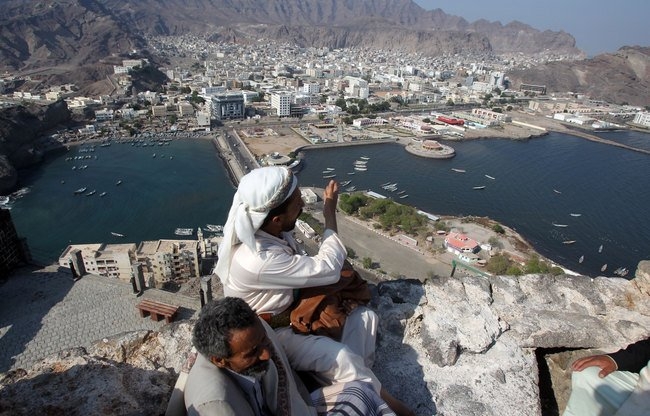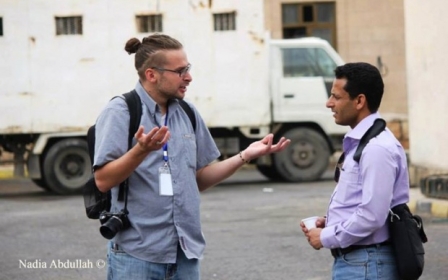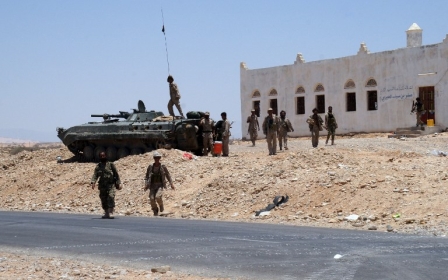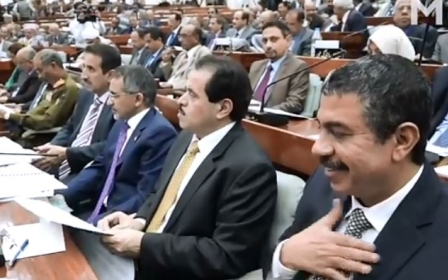Questions raised in deaths of US, South African hostages in Yemen

Everything was ready. Everything, repeated Anas Al-Hamati, over and over again.
For Al-Hamati, the Yemeni project manager of South African NGO Gift of the Givers, his 10 months of negotiations, and desperate pleas both directly with Al-Qaeda in the Arabian Peninsula (AQAP) and later with tribal middle men, were supposed to come to a happy ending. Everything down to plane tickets and passport arrangements were in place to take the South Africa teacher Pierre Korkie back home after being held captive in Yemen since May 2013.
But the delicate attempt to finally free the hostage was cut short after he was killed by his abductors, according to the American government, in Saturday’s botched attempt to rescue British-born American photojournalist Luke Somers. Korkie was being held with Somers at the time.
The Gift of the Givers benevolently took on Korkie’s case after he was kidnapped from the city of Taiz along with his wife, Yolande. She was later released thanks in part to Al-Hamati’s efforts to convince the kidnappers that she could return to South Africa to raise money for a ransom payment for Pierre.
Al-Hamati, tried “everything” to secure Korkie’s release - he had religious leaders from South Africa send letters to the captors pleading for them to show mercy, and was able to win over tribal leaders with promises that the Gift of the Givers would bring development projects to their area.
“I tried thousands of times,” Al-Hamati said. “There were so many ways.”
The charity was not guarded about their negotiation efforts, regularly producing press releases and providing contact details for journalists regarding the labored negotiations that Al-Hamati described as “on again, off again.” On Nov. 6, the South African news outlet Eyewitness News reported that “[AQAP’s] leaders are reported to be responding positively to correspondence from parties trying to secure Korkie’s release.”
Americans unaware of negotiations?
Despite this, American officials have told several news outlets, including the New York Times and the BBC, that they were not aware of the progess of negotiations to free Korkie, nor that the South African was being held with Somers at the time of the rescue mission.
“It is entirely possible that the US Government was unaware of, or chose to ignore, negotiations about Korkie's release since at least ostensibly the South African government had stated that it was not prepared to pay ransom money,” said James Selfe, national chairperson of South Africa’s main opposition party, the Democratic Alliance. The party has asked for a full briefing from the International Relations Committee of Parliament.
According to an email from Imtiaz Sooliman, the head of the Gift of the Givers, Yemeni authorities were aware of the group’s ongoing negotiations to secure Korkie’s release and were working with the South African ambassador in Saudi Arabia, who was responsible for issuing Korkie a passport. The group said, however, that it was not aware Somers and Korkie were being held together.
But, given the publicity of the ongoing negotiations and acknowledgement that Yemeni authorities were at least to some extent in the know, the US claims have come under intense scrutiny.
“The whole thing sounds absurd,” said Yemeni political analyst Abdulghani Al-Iryani. “It’s not like we have hundreds of foreign hostages here.”
For many, this highlights a potential gap in US intelligence in a country where they operate a controversial drone program, long-criticized for its lack of transparency and high civilian death toll.
The NGO told Middle East Eye that negotiations were almost derailed by a drone strike in early November. According to the NGO, tribal leaders said that several of their own members were killed while attempting to make contact with AQAP and a scheduled meeting was therefore delayed.
According to a source close to the negotiations, Yemen’s NSB - an intelligence agency designed to closely work with the US in counter-terrorism efforts - was also aware of the final stages of negotiations including the agreement to pay $200,000 to mediators to ”facilitate” Korkie’s release.
Who knew, how much did they know?
Khalid Ahmed, a security consultant in Yemen with close ties to the NSB, said while there is little doubt that the NSB had information, two key questions have arisen: who within the organization knew and how much did they know? He criticises what he sees as deadly negligence on the part of the Americans for failing to consult with local authorities.
“It’s a big problem of course,” Ahmed said. “They [the US] want to include as few people as possible [for security reasons].”
Ahmed calls into question the relationship between the major power brokers in this case - the Americans acting with a nod from Yemen’s president, Abdu Rabu Mansour Hadi.
“I have friends [in the NSB] complain about this all the time,” he said, explaining that there is a breakdown in communication between Yemen’s president, American officials and the institutions supposedly created to assist them with intelligence gathering and operations.
The US has in the past had difficult relations with Yemeni intelligence. Security agencies have long been accused of harboring rogue officials who aid militant groups like AQAP, instead of working to combat them.
“There has never been a successful model of cooperation between the Yemenis and Americans,” said Al-Iryani. “I cannot say the Americans didn’t do their homework properly [for the raid]. Things like this are to be expected when we’re talking about a country [Yemen] where the state apparatus has broken down completely.”
The US has staunchly defended its move to rescue Somers, claiming that his execution was imminent after the initial attempt to rescue him on Nov. 25. Korkie and Somers had been moved just days before that first raid.
US Defence Secretary Chuck Hagel told reporters that such operations are “risky” and “imperfect” but that there was no need for a review of the process leading to rescue attempts, the BBC reported.
A review of rescue operations themselves is likely, but the US policy of refusing to negotiate for hostages and pay ransoms will not be put on the table.
For Al-Hamati even the promise of a partial review wouldn’t make a difference.
“I am not sure it would have changed anything if they [the US] knew about Pierre Korkie or not,” Al-Hamati said. “They didn’t have a choice, they waited until the last moment.”
He says he isn’t angry at anyone, but the apparent unilateral action taken by the US to free Somers may have now put his life in danger as well.
In a phone interview he said a car he was traveling in came under fire on Sunday. The tribesmen responsible for negotiating Korkie’s release, Al-Hamati says, now believe he may have collaborated with the Americans.
Bigger questions are also being raised about future Yemeni-American intelligence sharing and collaboration in counter-terrorism efforts. The NSB, notoriously tight-lipped with reporters, was created in 2002 to serve as focal point for western intelligence agencies to work with the Yemeni government and assist in efforts to eradicate AQAP, including through the drone campaign.
In light of recent revelations that at least some information was available on the ground regarding Korkie’s negotiations, Bara’a Shiban, a local activist and anti-drone campaigner, said: “They [the US] don’t even trust their own bureau that they created and funded. They wanted a body to deal with and didn’t even communicate with them.”
In the meantime, the group that came so close to reuniting the Korkie family is trying to help others make sense of the thorny issues of hostage policy.
“The South African government is caught up in the same dilemma as the US government. Both do not talk to terrorists and don't pay ransom,” Sooliman said. “I'm aware that ransom perpetuates the capturing of hostages by militants. But at the same time we [have] a responsibility to the citizen of our country who was captured. Should we let him die? It is a policy that needs to be re-looked at."
New MEE newsletter: Jerusalem Dispatch
Sign up to get the latest insights and analysis on Israel-Palestine, alongside Turkey Unpacked and other MEE newsletters
Middle East Eye delivers independent and unrivalled coverage and analysis of the Middle East, North Africa and beyond. To learn more about republishing this content and the associated fees, please fill out this form. More about MEE can be found here.




